native
Showing 193–204 of 282 results
-
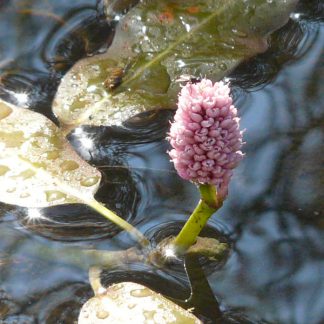
Persicaria amphibia / water smartweed
- shocking pink flower clusters
- oval, leathery leaves
- either submerged or on stream or pond banks
-
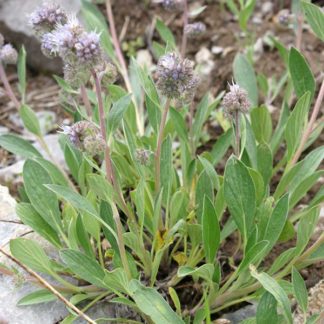
Phacelia hastata / silverleaf scorpionweed
- flowers - dull white-ish/purple-ish, numerous in short, compact, coiled clusters
- stamens extend well past petals
- leaves - basal with prominent veins; usually covered with silvery hairs; usually entire
- multiple flowering stems on a single plant
- in a variety of habitats
-
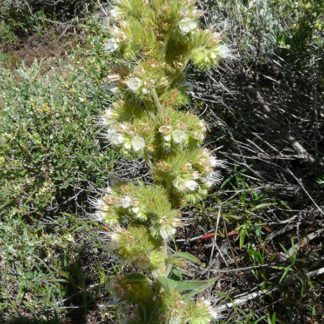
Phacelia heterophylla / varied leaf scorpionweed
- spirally arranged, teeny white flowers with very long stamens
- flowers turn brown soon after opening
- all parts of the plant are hairy
- not all that common, but widespread
-

Phacelia sericea / silky phacelia
- deep purple flowers with really long stamens and orange anthers
- many flowers arranged in a tight coil up to 2 feet long
- silky, divided (fern-like) leaves
- exposed, higher altitude, rocky places; often with sagebrush
-

Phalaris arundinacea / reed canarygrass
- large, coarse, erect grass
- long, flat blades with pointy tips... from base
- distinct ligule—membranous and long
- large but compact inflorescences (panicles)
- often in dense monocultures, e.g. on river banks
-

Phlox diffusa / spreading phlox
- low, spreading, moss-like (before blooming)
- flowers 5-petaled, a variety of colors, and with a tube below the petals
- many habitat types incl. mountain slopes, rocky terrain, dry forests or with sagebrush
- blooms in early spring to early summer
- confusable with P. hoodii
-
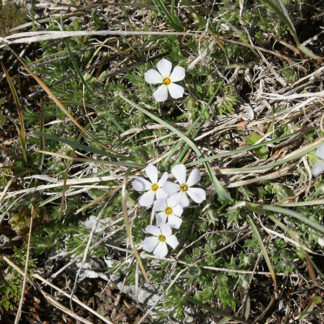
Phlox hoodii / spiny phlox
- half-inch, five (or four) petaled flower with yellow center
- low to ground, mat forming, moss-like
- tightly packed, narrow, spiny leaves
- blooms in very early spring, just after snowmelt
- with sagebrush on dry, rocky soils
-

Phlox longifolia / longleaf phlox
- white or pink to almost rose flowers
- blooms in spring, sometimes through to August
- common on disturbed and undisturbed sites
-
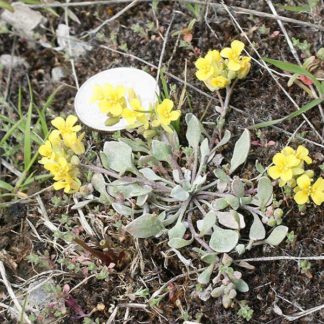
Physaria spp / twinpods
- yet another very small yellow crucifer/brassica
- densely hairy leaves, tapering to a petiole
- bloom in early spring on minimal soil in rocky places
- fruit characteristics TBPL
-
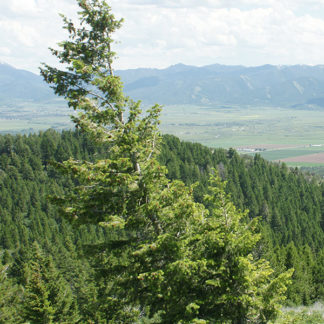
Picea engelmannii / Engelmann spruce
- common, especially in mixed conifer forests
- canopy a narrow spire in young trees, cylindrical in older trees
- sharp, pointy needles, generally "swept" toward branch tips
- needles attached to twigs with woody pegs (sterigmata)
- pendant cones less than 2.5 inches long; thin scales, wavy margins
-
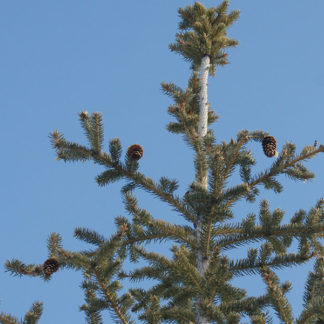
Picea pungens / Colorado blue spruce
- conical, layered crown; whorled branches
- frequent epicormic branches; "woolly" look
- stout, yellow-brown twigs with sterigmata (woody pegs)
- cones greater than 2.5" long
- cone scales stiff at base, diamond shaped, not wavy at tips
- in mixed conifer forests
-

Pinus albicaulis / whitebark pine
- high altitude - subalpine to alpine; cold, windy sites
- five needles in tight fasicles
- brown to purple cones at top of tree; cones don't open
- scaly grayish bark
Showing 193–204 of 282 results